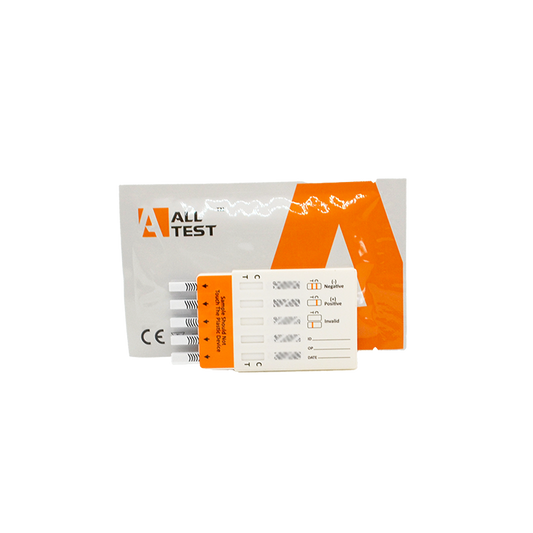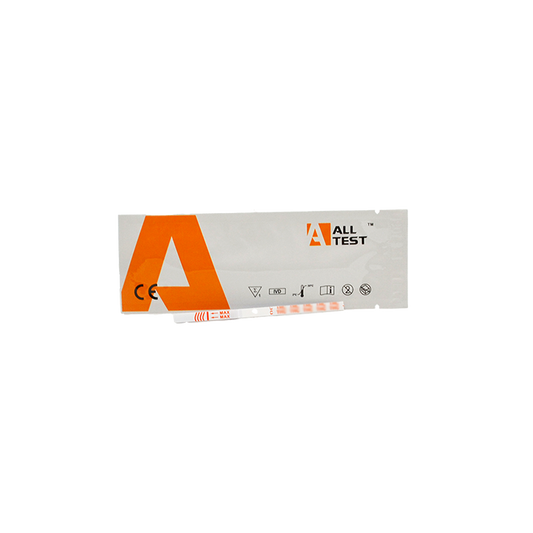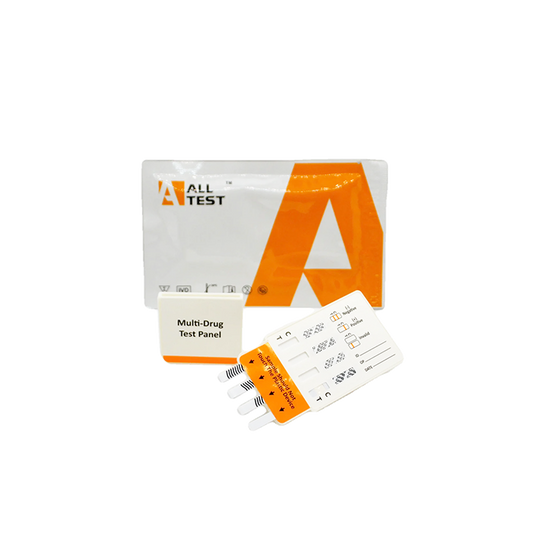Travelling with medication can be straightforward, but not always. Some medicines are easy to buy in parts of the world yet are controlled, banned or treated as criminal evidence when you try to bring them into the UK. Below I explain several commonly encountered drugs, the countries where travellers often obtain them, how they are classified in UK law, and what kinds of penalties or problems you might face if picked up at airport security. This is practical, harm reducing and not legal advice. Always check embassies and official guidance before you travel.
In many developing countries, substances like painkillers may be sold over the counter, but this does not mean they are legally available or safe to consume. Always research local laws before accepting any drugs from vendors.
If someone asks you to carry items in your luggage, politely refuse. If you must handle unfamiliar items, consider using a surface or powder test kit to check for the presence of drugs before agreeing to carry them.

Powder Drug Test Multi Panel (Workplace)
Test a powder or pill for drugs
Tramadol
What it is: an opioid analgesic used for moderate to severe pain.
Where travellers commonly buy it: tramadol is widely available or used across parts of North Africa and the Middle East and South Asia (Thailand) often sold illegally to tourists over counter. Countries reported to control or have significant tramadol use include Egypt, Saudi Arabia, Jordan, Kuwait, Lebanon, Libya, Morocco, Oman, Pakistan, Bahrain, Djibouti, Iraq and Afghanistan. American public health and international control reports note tramadol is under national control or restriction in many of these states. PMC+1
UK classification and import risk: tramadol is a Schedule 3 controlled drug in UK law since 2014. That means it is prescription only and subject to controlled drugs rules even if it is exempt from safe custody requirements in clinical settings. Importing tramadol without lawful proof of prescription or in suspicious quantities risks seizure and in some cases prosecution. The personal import policy allows up to a three month supply of schedule 2 to 4 drugs if properly prescribed, but travellers must be ready to prove the medicine is theirs. Derbyshire Medicines Management+1
Real world example: a UK traveller was sentenced in Egypt after returning with large quantities of tramadol; cases like that show how severe foreign penalties can be and why caution is vital. TIME
Importation Offence
Class C: maximum 2 years’ imprisonment (and/or an unlimited fine). Tramadol is a controlled prescription drug in the UK.
Codeine and codeine combinations
What it is: an opioid found in many cough syrups and painkillers, sometimes sold over the counter in low doses in the UK.
Where travellers can buy it easily: several countries sell codeine combinations over the counter or in looser regulatory environments, but many jurisdictions restrict it. Countries that treat codeine as prescription only or ban OTC sale include parts of Europe and many Gulf states; national rules vary widely. Reclassifications and restrictions have been implemented across multiple jurisdictions in recent years. Therapeutic Goods Administration (TGA)+1
UK classification and import risk: higher strength codeine preparations are prescription only. Carrying larger quantities or formulations that would be prescription medicines in the UK may attract seizure. Some destination countries will treat even a small amount as an offence if you cannot show a valid prescription. For personal travel, keep to reasonable quantities and bring prescriptions or a doctor letter. GOV.UK
Importation Offence
Class B (note: some low‑dose OTC codeine combinations are exempt): maximum 5 years’ imprisonment (and/or an unlimited fine).
Benzodiazepines and prescription sedatives
What they are: drugs such as diazepam, alprazolam and temazepam used for anxiety and sleep.
Where travellers buy them: in some countries they are more readily dispensed at pharmacies or sold informally, but many countries have strict rules. Singapore and the UAE are examples where prescription and import rules are tightly enforced and unauthorised possession can lead to arrest. HSA+1
UK classification and import risk: benzodiazepines are controlled and require prescriptions. Carry them only in original containers with an appropriate prescription and limit quantities to what you need for your trip. Some countries will require explicit prior approval for import. GOV.UK
Importation Offence
Class C: maximum 2 years’ imprisonment (and/or an unlimited fine). Legitimate possession with a prescription is not a criminal
Ketamine and certain dissociative drugs
What it is: an anaesthetic with both medical and veterinary uses that is also misused recreationally.
Where travellers might find it: ketamine has been diverted or sold illicitly in parts of Southeast Asia and elsewhere. Several Asian countries treat ketamine as a strictly controlled substance with heavy penalties for trafficking or importation. permitfortraveler.fda.moph.go.th+1
UK classification and import risk: ketamine is controlled under UK law and importing without a licence is illegal. If intercepted at border control the consequences depend on quantity and intent; trafficking scale offences attract the severest penalties. GOV.UK
Importation Offence
Class B: maximum 5 years’ imprisonment (and/or an unlimited fine). (Note: trafficking/supply carries much higher maximum sentences.)
Melatonin and “over the counter” sleep supplements
What it is: a hormone supplement for sleep that is over the counter or lightly regulated in some countries.
Where travellers buy it: melatonin is sold freely in many western markets but is prescription only or regulated in several Asian countries, notably Singapore, where the Health Sciences Authority regulates import and supply. Travellers have had supplements seized when they arrive without prior approval. HSA+1
UK classification and import risk: melatonin is available in the UK for certain uses but rules differ by country. If you are travelling to a jurisdiction where it is prescription only, bring a doctor letter and small quantities, or avoid bringing it at all.
Importation Offence
Not a standard criminal offence to possess in the UK (it is generally a prescription‑only medicine and MHRA/NHS guidance restrict sale), so there isn’t a standard possession‑for‑use prison maximum like the controlled drugs above; however imports or unlicensed supplies can be seized and may trigger regulatory action and some countries treat melatonin as prescription‑only so you can face problems on entry/exit.
Practical points on penalties and quantities
Border seizures are common and immediate. UK guidance allows a personal import tolerance in limited circumstances, such as up to a three month supply of schedule 2 to 4 drugs if properly prescribed, but that does not protect you from foreign law enforcement while abroad, or from prosecution on re-entry if you obtained the medicine unlawfully. Sentences depend on class of drug, quantity and intent. Class A imports carry the severest maximum penalties, and even for lower classes an importation offence can lead to a criminal record, fines or custodial sentences in aggravated cases. Always treat the absence of an exact gram threshold as a signal to be cautious: small quantities can be seized and may trigger further investigation. GOV.UK+1
Law Abroad: Harsh Drug Penalties for Tourists
When travelling abroad, it's crucial to understand that many countries enforce stringent drug laws, particularly concerning substances like cocaine, ketamine, and cannabis. Even small amounts can lead to severe legal consequences, including lengthy prison sentences or, in extreme cases, the death penalty.
Singapore imposes harsh penalties for drug offences. Possession of less than 20 grams of cocaine can result in up to 10 years of imprisonment or a fine of up to $20,000 SGD. For trafficking, the penalties are even more severe, with the possibility of the death penalty for amounts exceeding 30 grams. These strict laws are enforced rigorously, and foreign nationals are not exempt from prosecution Central Narcotics Bureau.
Indonesia also has stringent drug laws. Possession of any amount of cocaine can lead to severe penalties, including life imprisonment or the death penalty. In 2025, American basketball player Jarred Shaw faced the possibility of life imprisonment or the death penalty after being arrested for importing cannabis gummies to manage his Crohn’s disease. He was apprehended in May 2025 by undercover police while collecting a package containing 132 cannabis-infused edibles, valued at $400 The Guardian.
Thailand enforces strict drug laws, and in October 2025, British tourist George Wilson was arrested for allegedly smuggling 9.15 kilograms of methamphetamine. If convicted, he faces a possible death sentence The Times. While this case involves methamphetamine, Thailand's drug laws are equally stringent for other substances, including cocaine and ketamine.
These cases underscore the importance of understanding and respecting local drug laws when travelling abroad. Even substances that are legal or prescribed in one's home country can lead to severe legal consequences in other nations. Always research and adhere to the drug regulations of your destination to avoid life-altering repercussions.
Practical travel advice
- Carry medicines in original, clearly labelled packaging and in hand luggage.
- Keep a dated prescription or a letter from your clinician that states diagnosis, drug, dose and travel dates. If possible get documents translated to the language of your destination.
- Check the UK government and the country’s embassy guidance before travel. Use INCB country regulations and national health authority pages for authoritative lists where available. INCB+1
- Do not buy medicines abroad with the intention of bringing them home unless you have confirmed they are legal to import into the UK and in the destination.
- If you are prescribed drugs while abroad and you are habitually resident in the UK, contact the Home Office Drug and Firearms Licensing Unit for guidance before returning. GOV.UK
- Final note
- Avoid taking bags or luggage that might have had contact with drugs or medicine.
This guide names countries and drug classes where travellers commonly face problems, but laws and enforcement change. For trip-specific risk checks, consult the embassy or consulate of the country you are visiting and the official UK travel health and customs pages before you fly. If you would like, I can produce a country by country quick‑reference table for a specific destination list to carry with you when travelling.




